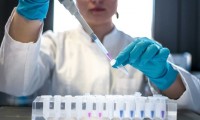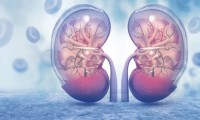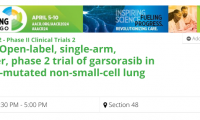-
University of Liverpool to lead £125m research facility supported by UKRI investment
- Source: drugdu
- 82
- April 1, 2024
-
Researchers discover a safer and more efficient technique for testing new drugs
- Source: drugdu
- 143
- March 30, 2024
-
Veeda Clinical Research acquires Heads, a European CRO
- Source: drugdu
- 83
- March 30, 2024
-
PhaSER Biomedical and the Sanders TDI partner for clinical drug discovery research
- Source: drugdu
- 96
- March 29, 2024
-
Researchers identify group of biological markers found in high levels in TB patients
- Source: drugdu
- 136
- March 28, 2024
-
Researchers suggest treatments for rare diseases could reduce burden of kidney disease
- Source: drugdu
- 76
- March 22, 2024
-
KCL researchers develop pipeline to create customisable cell culture device creations
- Source: drugdu
- 95
- March 21, 2024
-
2024 AACR | Latest research results on garsorasib (D-1553 tablets, KRAS G12C inhibitor) to be announced soon
- Source: drugdu
- 171
- March 18, 2024
-
Swedish researchers develop new AI computer model to detect lymphatic cancer
- Source: drugdu
- 149
- March 16, 2024
-
Roche partners with Cardiff researchers to uncover new research into dementia
- Source: drugdu
- 118
- March 16, 2024
your submission has already been received.
OK
Subscribe
Please enter a valid Email address!
Submit
The most relevant industry news & insight will be sent to you every two weeks.













